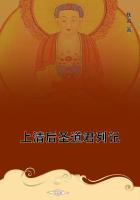The case of self-management, as Herr Dühring calls it --or rather, the management of farms by bailiffs for the landowner's account, as happens most frequently in Germany -- does not alter the matter. If the landowner also provides the capital and has the farm run for his own account, he pockets the profit on capital in addition to the rent, as is self-understood and cannot be otherwise on the basis of the existing mode of production. And if Herr Dühring asserts that up to now no one has found it necessary to conceive the rent (he should say revenue) resulting from the owner's own management as divided into parts, this is simply untrue, and at best only proves his own ignorance once again. For example:
"The revenue derived from labour is called wages. That derived from stock, by the person who manages or employs it, is called profit... The revenue which proceeds altogether from land, is called rent, and belongs to the landlord... When those three different sorts of revenue belong to different persons they are readily distinguished; but when they belong to the same they are sometimes confounded with one another, at least in common language. A gentleman who farms a part of his own estate, after paying the expense of cultivation, should gain both the rent of the landlord and the profit of the farmer. He is apt to denominate, however, his whole gain, profit, and thus confounds rent with profit, at least in common language. The greater part of our North American and West Indian planters are in this situation. They farm, the greater part of them, their own estates, and accordingly we seldom hear of the rent of a plantation, but frequently of its profit... A gardener who cultivates his own garden with his own hands, unites in his own person the three different characters, of landlord, farmer, and labourer. His produce, therefore, should pay him the rent of the first, the profit of the second, and the wages of the third.
The whole, however, is commonly considered as the earnings of his labour.
Both rent and profit are, in this case, confounded with wages."This passage is from the sixth chapter of Book I of Adam Smith .
The case of self-management was therefore investigated a hundred years ago, and the doubts and uncertainties which so worry Herr Dühring in this connection are merely due to his own ignorance.
He eventually escapes from his quandary by an audacious trick:
The farmer's earnings come from the exploitation of the "rural labour-power"and are therefore obviously a "part of the rent" by which the "full rent", which really should flow into the landowner's pocket, "is reduced".
From this we learn two things. Firstly, that the farmer "reduces" the rent of the landowner, so that, according to Herr Dühring, it is not, as was considered hitherto, the farmer who pays rent to the landowner, but the landowner who pays rent to the farmer -- certainly a "from the ground up original view" {D. Ph. 525}. And secondly, we learn at last what Herr Dühring thinks rent of land is: namely, the whole surplus-product obtained in farming by the exploitation of rural labour.
But as this surplus-product in all economics hitherto -- save perhaps for the work of a few vulgar economists -- has been divided into land rent and profit on capital, we are compelled to note that Herr Dühring's view of rent also is "not the accepted one" {D. K. G. 497}.
According to Herr Dühring, therefore, the only difference between rent of land and earnings of capital is that the former is obtained in agriculture and the latter in industry or commerce. And it was of necessity that Herr Dühring arrived at such an uncritical and confused view of the matter. We saw that his starting-point was the "really historical conception", that domination over the land could be based only on domination over man. As soon, therefore, as land is cultivated by means of any form of subjugated labour, a surplus for the landlord arises, and this surplus is the rent, just as in industry the surplus-labour product beyond what the labourer earns is the profit on capital.
"Thus it is clear that land rent exists on a considerable scale wherever and whenever agriculture is carried on by means of any of the forms of subjugation of labour" {D. C. 162}.
In this presentation of rent as the whole surplus-product obtained in agriculture, Herr Dühring comes up against both English farmer's profit and the division, based on English farming and recognised by all classical political economy, of that surplus-product into rent of land and farmer's profit, and hence against the pure , precise conception of rent. What does Herr Dühring do? He pretends not to have the slightest inkling of the division of the surplus-product of agriculture into farmer's profit and rent, and therefore of the whole rent theory of classical political economy; he pretends that the question of what farmer's profit really is has never yet been raised "in this definite form" {157}, that at issue is a subject which has never yet been investigated and about which there is no knowledge but only illusion and uncertainty. And he flees from fatal England -- where, without the intervention of any theoretical school, the surplus-product of agriculture is so remorselessly divided into its elements:
rent of land and profit on capital -- to the country so beloved by him, where the Prussian law exercises dominion, where self-management is in full patriarchal bloom, where "the landlord understands by rent the income from his plots of land" and the Junkers' views on rent still claim to be authoritative for science -- where therefore Herr Dühring can still hope to slip through with his confused ideas of rent and profit and even to find credence for his latest discovery: that rent of land is paid not by the farmer to the landlord but by the landlord to the farmer.
X.
FROM KRITISCHE GESCHICHTE















